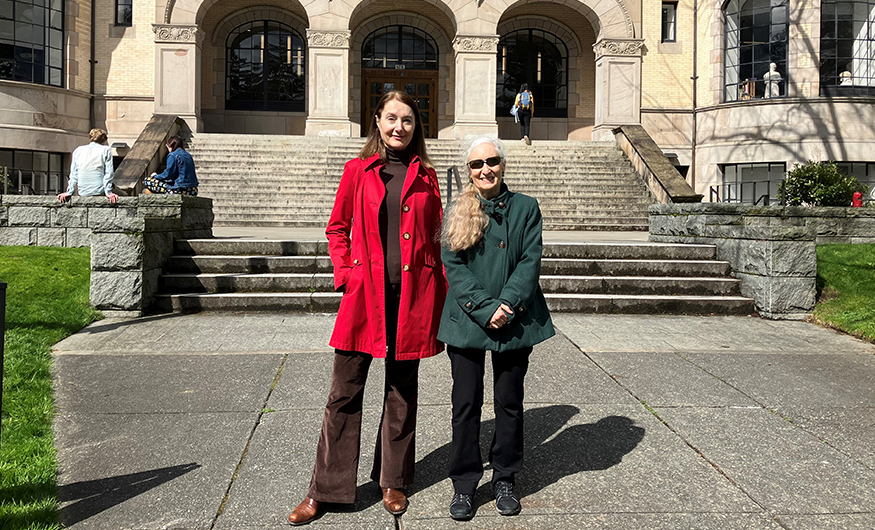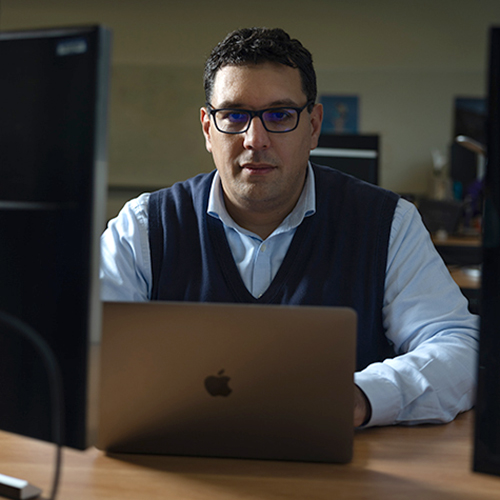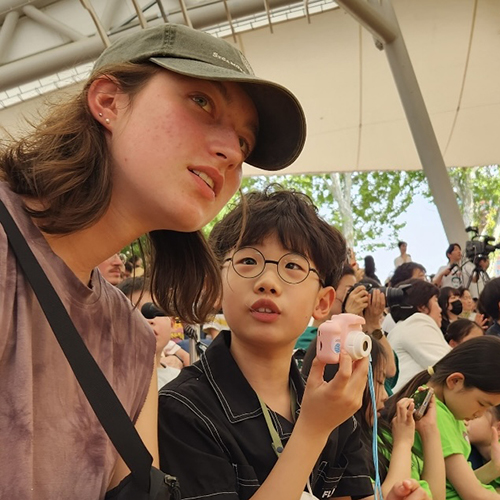
Good news for fans of the written word: The UW College of Arts & Sciences (CAS) has introduced a new major, Global Literary Studies (GLITS). Through GLITS, students can study Nobel Prize-winning literature, traditional Chinese poetry, environmental literature, Korean comics, Indigenous literature, Viking sagas, crime fiction, literature about medicine, fairy tales, and much more.
The GLITS major is designed to encourage exploration of literary traditions from around the globe and all eras of human history. Works are presented in English, in a wide range of genres.
“The major is designed to be accessible to the widest range of students possible who are interested in literature,” says Brian Reed, CAS divisional dean of humanities. “The motto of the humanities is ‘We open the world.’ This is an opportunity for our students to gain a range of important experiences en route to becoming better global citizens in a world where communication is essential.”
Literary Connections Across Time, Place, and Genre
All GLITS majors take an introductory course that delves into central questions of literary study: What is literature? How can we think about literature on a global scale? They finish the major with a final course that reflects on their literary journey. Between those bookends, they have tremendous flexibility in the courses they take, making GLITS an ideal second major for any student with an appreciation for literature.
“There’s no way anyone can survey, let alone delve deeply, into the literature of the world from the beginning of human language until now,” says Gordana Crnković, co-director of the new GLITS major and professor and chair of the Department of Slavic Languages & Literatures (SLL). “But GLITS students do get a great sense of different ways of thinking and language use. If they can expand their language and literary horizons by this study, it will serve them their whole life.”
We’re committed to this because we love literature, and we think that our students also deserve a chance to love it.
To ensure that students gain a breadth of literary knowledge, GLITS majors take courses in five categories — literature across time, across place, across languages, across genres, and across disciplines — with dozens of courses to choose from. For the literature-across-time category, students might take “The Classical Tradition,” a course that explores connections between ancient and modern texts and ideas. For literature across place, “Indigenous Illuminations” explores work from Indigenous groups around the globe. “Literature and Science” considers how literature can communicate scientific questions in impactful ways. Some courses are team taught, including “Cross-Cultural Encounters in the Middle Ages,” in which instructors from two departments explore how European encounters with the Middle East and Far East during the Middle Ages are expressed in literary works.
A New Model for a Major
Crnković began brainstorming the idea of a GLITS major five years ago with two colleagues, Naomi Sokoloff and Gary Handwerk. Sokoloff, GLITS co-director, is professor and chair of the Department of Middle Eastern Languages and Cultures. Handwerk, professor of comparative history of ideas and comparative literature is director of the UW Program on the Environment and Bruce J. Leven Professor of Environmental Studies.

With the support of Reed and other CAS leadership, Crnković, Sokoloff, and Handwerk served as a task force to explore the potential benefits and hurdles of creating a global literature major. The benefits inspired them, but the hurdles… well, there’s a reason the major took five years to finalize.

The most obvious challenge: GLITS was envisioned as a divisional major, shared by nearly a dozen departments. That model was new. On top of that, the major would not have a single faculty position of its own. “We basically had to reconfigure what already existed in departments,” says Crnković, referring to existing faculty and courses. “We needed people to think with us in a different way.”
Early on, the task force met with Humanities department chairs to get their input and buy-in, and several symposia were held to strengthen ties between humanities scholars at the UW. “Global Literatures, Global Literacies,” an online symposium hosted by the UW’s Simpson Center for the Humanities in 2021, featured five-minute talks by 20 humanities faculty about a global literature course they were already teaching or planning to teach. Those talks were a powerful motivator for the task force team.
“I think many of us in the humanities have felt that we were in silos,” says Sokoloff. “We felt isolated at times. This was a chance to get to know one another. And it turns out that we have really great faculty here.”
"A Heroic, Tremendous Effort"
To ensure the ongoing success of GLITS, a six-member GLITS steering committee will continue to build the major. Steering committee members come from departments across the humanities, with Crnković and Sokoloff currently coordinating their efforts as GLITS co-directors. For logistical reasons, GLITS is housed in the Department of Slavic Languages & Literatures, but the steering committee, with its rotating membership, ensures that a range of specialties, backgrounds, and points of view are represented.
The mammoth achievement of the new major has not been lost on Reed. He describes his role in the process as “advocate and connector,” noting that Crnković, Sokoloff, and Handwerk did the heavy lifting in bringing this idea to fruition.
“This has required vision and persistence and commitment,” Reed says. “The three of them had to step away from their own scholarly commitments and embrace the idea of collaboration and institutional change. Along the way, they had to deal with a lot of bureaucracy and setbacks. It’s really been a heroic, tremendous effort, and I am so grateful for their involvement.”
Sokoloff appreciates the sentiment but insists that GLITS has been a labor of love.
“We’re committed to this because we love literature, and we think that our students also deserve a chance to love it,” she says.
More Stories

Democracy by the Numbers
Mathematics and Democracy, an undergraduate mathematics course, explores the role of math in many aspects of democracy, from elections to proportional representation.

A Statistician Weighs in on AI
Statistics professor Zaid Harchaoui, working at the intersection of statistics and computing, explores what AI models do well, where they fall short, and why.

Finding Family in Korea Through Language & Plants
Through her love of languages and plants — and some serendipity — UW junior Katie Ruesink connected with a Korean family while studying in Seoul.
